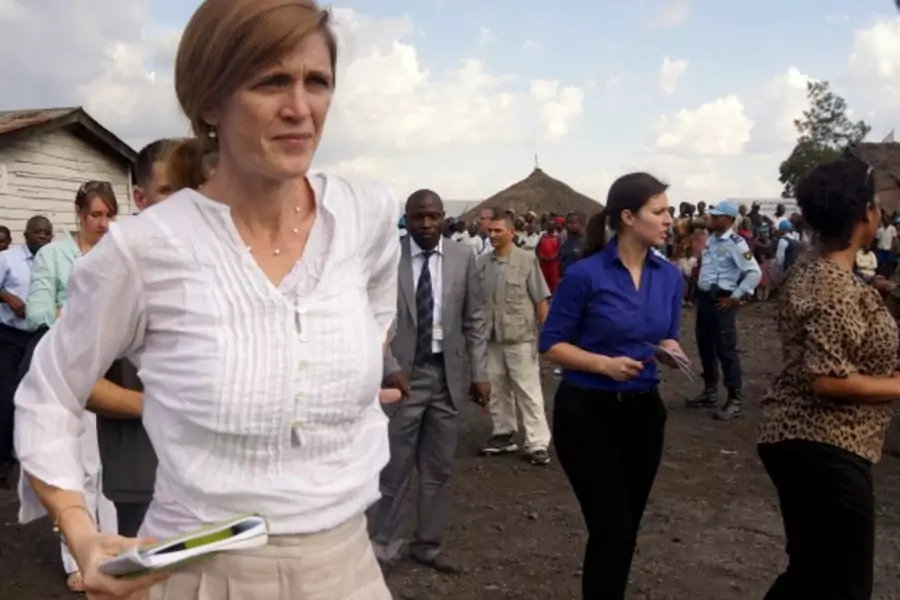More on:
High profile visits to war or disaster zones have long been common and popular among senior U.S. officials, as has foreign travel in general. Hillary Clinton was proud that she had traveled to 112 countries as secretary of state. At the same time, security requirements have grown, seemingly exponentially, often causing indignation among local people because of the disruption in their daily lives. And sometimes tragedy happens, as in Cameroon, where U.S. ambassador to the UN Samantha Power’s speeding motorcade killed a child in April. But, U.S. officials welcome the U.S. media attention such visits provide, as do local elites and politicians who ae often disconnected from the people they ostensibly govern.
Ambassador Power’s entourage included nine journalists, and a purpose of the visit was to call attention to refugees. But, Washington too often overlooks the downside among host populations, if not elites, to the security requirements of U.S. visitors.
On December 16, The New York Times released a report documenting the April 18, 2016 accident when a vehicle in Ambassador Power’s motorcade struck and killed a six-year old child in a Cameroonian village. Power was on her way to a refugee camp that housed sixty thousand people forced from their homes by the radical Islamist movement Boko Haram. Her fourteen vehicle motorcade was traveling through the village at an estimated forty-five miles per hour. Following usual security procedures, the motorcade did not stop, though an ambulance, part of the motorcade, did. But the child was already dead.
According to the New York Times, Ambassador Power was personally devastated when she heard the news. Against the advice of her security people, she returned to the village to offer condolences, where her reception was icy. The U.S. Department of State has paid compensation to the family of the child: $1,700 in cash, two cows, sacks of flour, rice, salt, sugar, onions, cartons of soap, and oil. The Times also reports that the U.S. government has built a well near the front of the family house. Ambassador Power has established an escrow account personally to pay the school fees of the victim’s siblings through high school.
Ambassador Power’s security was tight: in addition to Cameroonian elite forces it included U.S. Navy SEALs. U.S security personnel dictated the size of the motorcade, its speed, and the fact that it did not stop. After all, Boko Haram had conducted recent operations only twenty miles away. With respect to the security of U.S. officials, as the Times observes, “Failure is unacceptable: Congressional panels spent two years and more than $7 million investigating why the State Department, the Pentagon, and the Central Intelligence Agency were not able to prevent the deaths of four Americans, including the ambassador to Libya, when the United States diplomatic compound in Benghazi was stormed in 2012.”
More on:
 Online Store
Online Store
